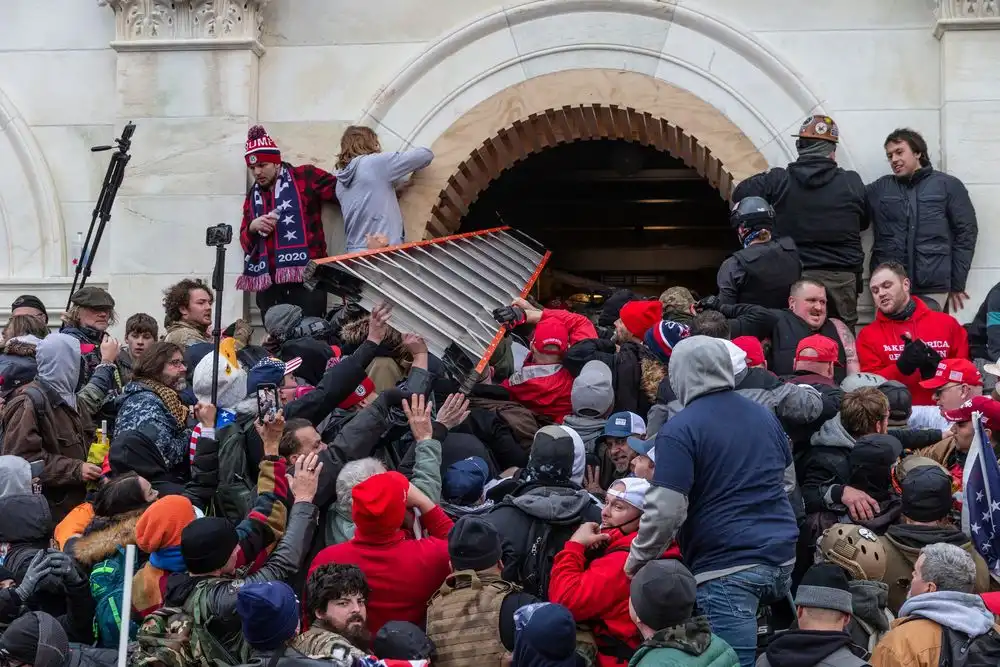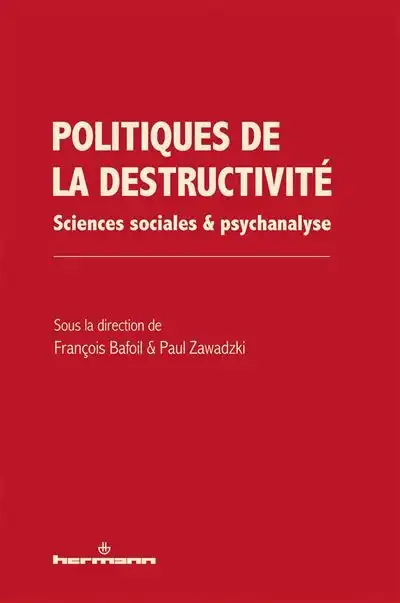
Home>Research>Research Groups and Seminars>Social sciences and psychoanalysis
Social sciences and psychoanalysis
War, civil wars, and periods of latency

In selecting war as the theme for this year's seminar, we are building upon the efforts of previous years to identify ways of combining the complementary contributions of political science, socio-historical analysis, and psychoanalysis. Rather than analysing historical configurations of war directly or studying violence as a simple effect of the destructive impulse considered an anthropological constant, we aim to explore how taking the field of affects and impulses into account informs the analysis of warlike violence phenomena.
Thus, the question concerns the categories used in these different disciplines, such as repetition and re-presentation, forgetting and repression, negation or denial, hatred, love and barbarism, enjoyment and indifference, the imaginary, fantasy and surrealism, latency and memory. Ultimately, we must consider the relevance of the category of death drive.
Although the social sciences — at least those concerned with the subjectivity of social actors — and psychoanalysis both analyse individual phenomena to inform their interpretations, their epistemologies differ. This is particularly true of proponents of singularising knowledge, who are often wary of using concepts, whereas psychoanalysis is based on a long-established conceptual corpus.
This raises the ongoing challenge at the heart of this seminar: how can these different levels be articulated without juxtaposing or uncontrollably hybridising them?
Historians may therefore be asked how they draw on universalising theories, such as those working with concepts of the unconscious, repetition, repression and latency in history, in their analysis of war, hate and genocidal violence. How do they deal with murderous delusions? More broadly, we would like to ask social scientists how they deal with the 'unknown' aspects of their objects of analysis. Indeed, their analyses often concern functions or processes that are unknown to the people involved. What is the relationship between this 'unknown' and the unconscious, given that the dynamic unconscious cannot be reduced to the non-conscious?
Building on this, we might consider the role of emotional and/or instinctual dimensions in the phenomena of war and hatred of the other. Beyond Pierre Bourdieu, who assigns sociologists the task of ensuring 'the controlled return of the repressed', how is the psychological dimension of repression integrated into analyses of the outbreak of warlike brutality? If paradigms such as 'frustration-aggression' are employed in explanations, what roles do frustration, displeasure, and unresolved tensions play in the outbreak of violence? What value do historians and sociologists attach to the Freudian thesis in Civilisation and its Discontents, taken up by Elias, which states that civilisation's growth comes at the cost of sacrificing individual pleasure for very relative gains, deepening social inequalities, and ultimately risking a general explosion of revolution and war?
Psychoanalysts should therefore be asked to clarify the place they assign to the singularity of social configurations in their proposed understanding. How do they conceive of the collective dimension of destructive dynamics? What do they consider to be original? What status does 'the other' — the family, the community, the social and the political — acquire in the resistance that the drive encounters? More broadly, how do they articulate their theory of the psyche with institutions, particularly new forms such as totalitarianism and democracy?
Furthermore, how do psychoanalysts ground their 'mythology' (that of the drives, in Freud's words) in the political specificity of the experiences they address? In this context, under what conditions could the concept of the death drive be applicable? How do psychoanalysts understand the state's role in overseeing individual drives, sometimes inciting and sometimes repressing them, to produce an order where collective satisfaction has little or nothing to do with individual pleasure?
Underpinning these questions is the issue of 'fictionalisation' for each discipline and, consequently, language. By fictionalising the other as an absolute enemy, radical hostility often involves 'derealisation' (negationism or 'inventionism'). However imaginary or delusional these representations may be, they produce real effects. More broadly, violence often arises from the breakdown of shared representations of reality.
Photo : Lev Radin, Washington, DC-January 6, 2021: Rioters clash with police trying to enter Capitol building through the front doors, Shutterstock
Programme
Cycle de séminaires 2025-2026
CERI, 28 rue des Saints-Pères, Paris 7e, Salle Pierre Hassner (1er étage) / 18h-20h
13 octobre 2025
Denis Crouzet, professeur d’histoire émérite, université Paris-Sorbonne
Le massacre de la Saint-Barthélemy : une tuerie du désir ?
De la France du XVIe siècle au Moyen Orient d’aujourd’hui, certaines similitudes peuvent surgir sous le regard de l’historien. Les contemporains des guerres de Religion eurent en effet la conscience effrayée d’assister à des déchaînements de violences qu’ils qualifièrent d’« inouïes », de « barbares », d’«inhumaines» parce qu’elles s’attachaient à mutiler, brûler, marquer atrocement les corps, jusqu’au paroxysme d’un crime de masse parisien en août-septembre 1572. Un théâtre de la « cruauté » enseignait la puissance d’un Dieu de colère refusant toute présence parmi Son peuple de fidèles d’un autre Dieu. Et la violence unissait les gestes assassins à un désir de Dieu ne tolérant pas qu'un autre Dieu soit honoré.
Et aujourd’hui, force est de constater que le radicalisme islamique donne lieu en Occident à une perception tout aussi effrayée qui occulte parfois le fonctionnement d‘une raison alternative de la rationalité occidentale moderne, une raison de Dieu que le désir des hommes cherchent à rencontrer pour accéder à un désangoissement eschatologique. Se pose donc la question suivante : les guerres pour Dieu de jadis et maintenant ne répondraient-elles pas à une sotériologie nécessitant la cruauté parce qu’elles se veulent des guerres de Dieu, agies pour Dieu et par Dieu à travers le don sacrificiel de soi qu’est l’engagement à lutter contre ce qui est censé être le mal, les puissances du diable fantasmées comme suractivées désormais parce que la fin des temps serait proche ? Les corps de l’ennemi de Dieu ne seraient-ils pas des messages glorifiant la Toute-puissance divine, des pédagogies de la gloire de Dieu, un théâtre de la cruauté qui est aussi une propédeutique de l’absolue Transcendance divine et de l’obligation de soumission totale de l’humain au désir divin ?
10 novembre 2025
Abram de Swaan
Marée mondiale réactionnaire et émancipation des femmes. Post-scriptum Contre les femmes (Abram de Swaan, 2019)
Depuis les six années écoulées après la parution de Contre les femmes. La montée d’une haine mondiale, les extrémistes de droite et les fondamentalistes chrétiens se sont imposés aux États-Unis et, dans bien des pays, ils tiennent désormais les rênes du pouvoir ou gagnent sans cesse du terrain dans l’opinion. Ces radicaux, religieux ou politiques, incarnent exactement les courants idéologiques que j’avais désignés dans mon livre comme les adversaires farouches de l’émancipation féminine. Et pourtant, je terminais cet ouvrage sur une note d’espérance : partout dans le monde, même dans les sociétés les plus réactionnaires, l’éducation des filles n’a cessé de progresser au cours du dernier siècle.
Ce que je n’avais pas prévu, en revanche, c’est l’adhésion croissante, au cours de ces dernières années, d’un grand nombre de femmes elles-mêmes aux croyances et idéologies réactionnaires. Le mouvement féministe aurait-il suscité, par contrecoup, une contre-offensive parmi les femmes plus conservatrices, celles dont la vie se concentre avant tout au foyer, et qui se sentent méprisées par la condescendance de certaines féministes envers celles qui « ne font qu’élever leurs enfants et tenir leur maison » — une source pourtant essentielle de fierté pour tant d’entre elles ? Dans le même temps, fondamentalistes et réactionnaires ont infléchi leur discours à l’égard des femmes, mais de façon éminemment ambivalente puisque s’ils disent que la place des femmes est avant tout au foyer, ils n’ excluent pas qu’elles accèdent à des postes de pouvoir, pourvu qu’elles s’emploient à glorifier ce rôle traditionnel de gardiennes du foyer.
8 décembre 2025
Denis Lacorne (directeur de recherche émérite au CERI, dernier ouvrage paru De la race en Amérique, Gallimard, Coll. « L’esprit de la cité », 2025)
Les ‘bons gènes’ du président Trump. Réflexions sur la difficile dé-racialisation de la société américaine
Que se passe-t-il lorsque l’on vit, comme aux États-Unis, dans une société qui reste hyper-racialisée ? Une société où l’on a, trop longtemps, divisé la population entre deux races antagonistes : les Blancs et les Noirs et plus récemment les Blancs d’origine européenne et les nouveaux immigrés — des peuples de couleur originaires du Mexique et du Sud global. Comment se soustraire à l’essentialisme racial, au suprémacisme blanc et à la peur atavique d’un « grand remplacement » ? Comment résister aux catégories raciales imposées par les agents du recensement ? Quelles sont les conditions de possibilité d’un désengagement, d’une dé-racialisation de la société ? Peut-on imaginer une nation « sans race », aveugle ou indifférente à la question de couleur? En bref, est-il possible de « déracialiser l’Amérique » sans détruire toutes les formes de diversité, comme le président Trump et ses émules tentent de le faire en manifestant une forme inédite de «wokisme à l’envers » ? La question du charisme de Trump, au sens wébérien du terme, sera aussi abordée. On montrera que ce charisme est indissociable d’une forte instrumentalisation du religieux à des fins politiques et d’un certain virilisme destiné à humilier les groupes les plus faibles et les adversaires apparemment les plus redoutés.
19 janvier 2026
Houria Abdelahoued
Professeur à l'Université Sorbonne Paris Nord, psychanalyste et traductrice.
https://www.desfemmes.fr/essai/face-a-la-destruction/
La confiscation du corps de la femme dans l’islam et les sociétés musulmanes
Autant les ouvrages de la littérature arabe conservent soigneusement les poèmes où l'homme donne libre cours à son fantasme, voire à son libertinage ou à son blasphème, autant les femmes ont été livrées à l'œuvre de l'effacement. La censure s'abat sur la femme dès qu'elle parle librement de son corps et de son désir.
Or des femmes rebelles existent bel et bien dans le monde arabo-musulman. Mais, des pans de leur histoire furent effacés lorsqu'ils n'ont pas été déformés. Plus elles sont libres, plus les historiens, sous le poids du politico-théologique, s'acharnent à effacer leurs traces, ce qui équivaut à un meurtre. Car comment concevoir que la femme puisse prendre son envol et parler de son désir, du pulsatile de son corps dans une contrée où elle n'est instituée que comme objet à posséder ou champ à labourer ?
L'historien s'appuyant sur les commentaires des hagiographes, a fabriqué une Histoire conforme à une politique du pouvoir voire du surpouvoir (si l'on fait nôtre cette expression de Foucault) et à un discours de domination dans un monde hiérarchisé recevant ses lois du ciel. Il a institué une suréminence masculine qui a fondé le politique sacré qui s'oppose à tout travail de pensée. Toute remise en cause équivaut à un blasphème. Les textes des hagiographes deviennent le Texte de la pensée politique et constitue le terreau conceptuel qui a permis l'exclusion de la femme de tous les dispositifs qui permettent une autonomie ou une émancipation ou une parole sur son désir, son corps ou sa chair.
16 février 2026
Gérard Bensussan
Des sadiques au cœur pur
16 mars 2026
Cécile Vaissié
L’URSS. Le déni. Le cas de Jean-Paul Sartre
30 mars 2026
Jean-Yves Tamet
Une amitié sous le feu de critiques : Zola-Cézanne
13 avril 2026
Gilbert Diatkine
La psychanalyse en Europe centrale avant et après 1989 (titre à confirmer)
11 mai 2026
Anna Zielinska
Qu’apprenons nous de Stanley Milgram. Les fragilité disciplinaires de la psychologie sociale
Juin 2026
Riva Kastoryano
Migrations et identité

Politiques de la destructivité. Sciences sociales et psychanalyse
François Bafoil et Paul Zawadzki (dir.)
Editions Hermann
2024
Listen to seminar recordings
See recordings
Scientific Coordination

Follow us
Contact us
Media Contact
Coralie Meyer
Phone : +33 (0)1 58 71 70 85
coralie.meyer@sciencespo.fr
Corinne Deloy
Phone : +33 (0)1 58 71 70 68
corinne.deloy@sciencespo.fr
